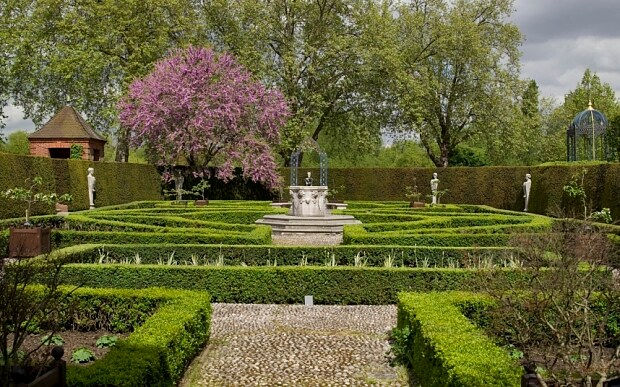What Is Herbal Heritage? - and why it matters..
- victoria ward
- Oct 20, 2025
- 4 min read

Heritage is our background, our backstory including all that we carry over from the generations that came before us. Its traces and shadows remain anywhere you choose to look, including in the mirror. It shapes our towns and countryside, our culture and values.
What we choose to continue and preserve is the heritage we value, some aspects of past practices we choose to close the door on.
My passion is herbal heritage, which we are all in someway connected to as our original health system. This is one to preserve, and my mission is to convince you why!
How Is Herbal Heritage Preserved?
Knowledge about medicinal plants has been with us from the beginning of our existence- but you may wonder where it came from in the first place?
Animals instinctively self-medicate with medicinal plants as any dog owner will know when their dog eats grass. We too share these instincts to heal ourselves and others from what we find around us.
Medicinal plants speak to us in their own way, they often contain clues in their appearance that suggest which part of the body they may help. This is known as the 'Doctrine of Signatures'. This offers us a theory about how we knew which plants to use.
Herbal medicine was always folk medicine and practised in the home, this still continues today and knowlege is passed down through families- tips like rubbing dock leaves on nettle stings.
Herbal knowledge today is kept just about within living memory, asides from what we retain ourselves, it is passed on through word-of-mouth, in books, academia and now through online resources.
Our landscape also holds many clues to herbal heritage, mostly through plants that have escaped and naturalised in the wild. An example of this are the hops in the hedgerows near my house, these have most likely escaped from a local monastery garden.
We can appreciate herbal heritage in the countryside and in formal gardens that are maintained for historical value and for research purposes.
Why Is Herbal Heritage Valuable?
It is important that all the accumulated skills and knowledge are preserved and passed on to future generations, the gardens tended and plants protected. Plants are still revealing their secrets to those who look, perhaps seeking future medical cures.
Valuing medicinal plants helps us respect our land and growing spaces, it helps to preserve and protect natural habitats where herb species are integral to successful eco-systems.
For many countries, herbal heritage is part of their touristic appeal, drawing visitors who are travelling for wellness or because they are interested in herbal medicine either as a health professional or hobbyist.
Where herbal heritage is valued and promoted, ecomomic benefits are considerable and bring income to often, poorer rurual areas or help fund cultural preservation efforts and protect land from over-development.
Herbal Heritage And Tourism- Mutual Benefits
I have written in a previous post about Herbal Tourism as a form of 'alternative tourism' that is sustainable and protects green space and preserves cultural heritage, it can include -
Immersive experiences such as retreats, workshops, spas and herbalist visits
Herb garden visits, plantations or foraging/wild herb expeditions
Museums or historical sites
My 'Herbal Travel Directory' is steadily being created as I make my way around all the herbal wonders I can find, please subscribe to keep up-to-date with my latest finds.

What Kind Of Holiday Do You Want?
'Alternative tourism' describes an alternative to 'mass tourism' which is understood to have the following features-
Large number of tourists visiting one destination
Pre-packaged holiday deals
Purpose-built resorts
Entertainment and food provided to suit tourist tastes
Benefits of mass tourism include-
Hoildays are more affordable and accessible
Econonic benefits to the destination
Infrastructure improvements for the destination
Negative aspects of mass tourism-
Environmental issues
Over-development
Pollution
Over-crowding
Destruction of natural spaces
Loss of cultural identity
Alternative tourism may refer to -
Eco-tourism
Agritourism
Cultural tourism
Benefits of Alternative tourism -
Protection of green, natural spaces
Economic benefits to poorer, rural populations
Preservation of cultural practices
Herbal Heritage
Whatever you want to call it- herbal journeys, herbal travel, herbal holidays or herbal tourism, discovering Herbal Heritage in different countries and cultures fits beautifully with the concept of alternative tourism. I have witnessed first-hand on recent travels the impact of diminishing interest in herbal medicine from locals, the reluctance of the younger generations to carry on the practices of their forefathers. Diversification away from traditional practices is often necessary to bring more income in.
With dwindling local business, herbalists look to tourists to take interest in their products.
Consider exploring Herbal Heritage for your own discovery and enjoyment and to support the people who are the keepers of this ancient knowledge and skill.
Resources
Sarah E Edwards, The Ethnobotanical : A World Tour of Indigenous Plant Knowledge
Michael J Balick, Plants, People, and Culture: The Science of Ethnobotany
Affiliate Links
This post may contain affiliate links, meaning I get a small commission if you decide to make a purchase through any links. This is at no extra cost to you.




Comments